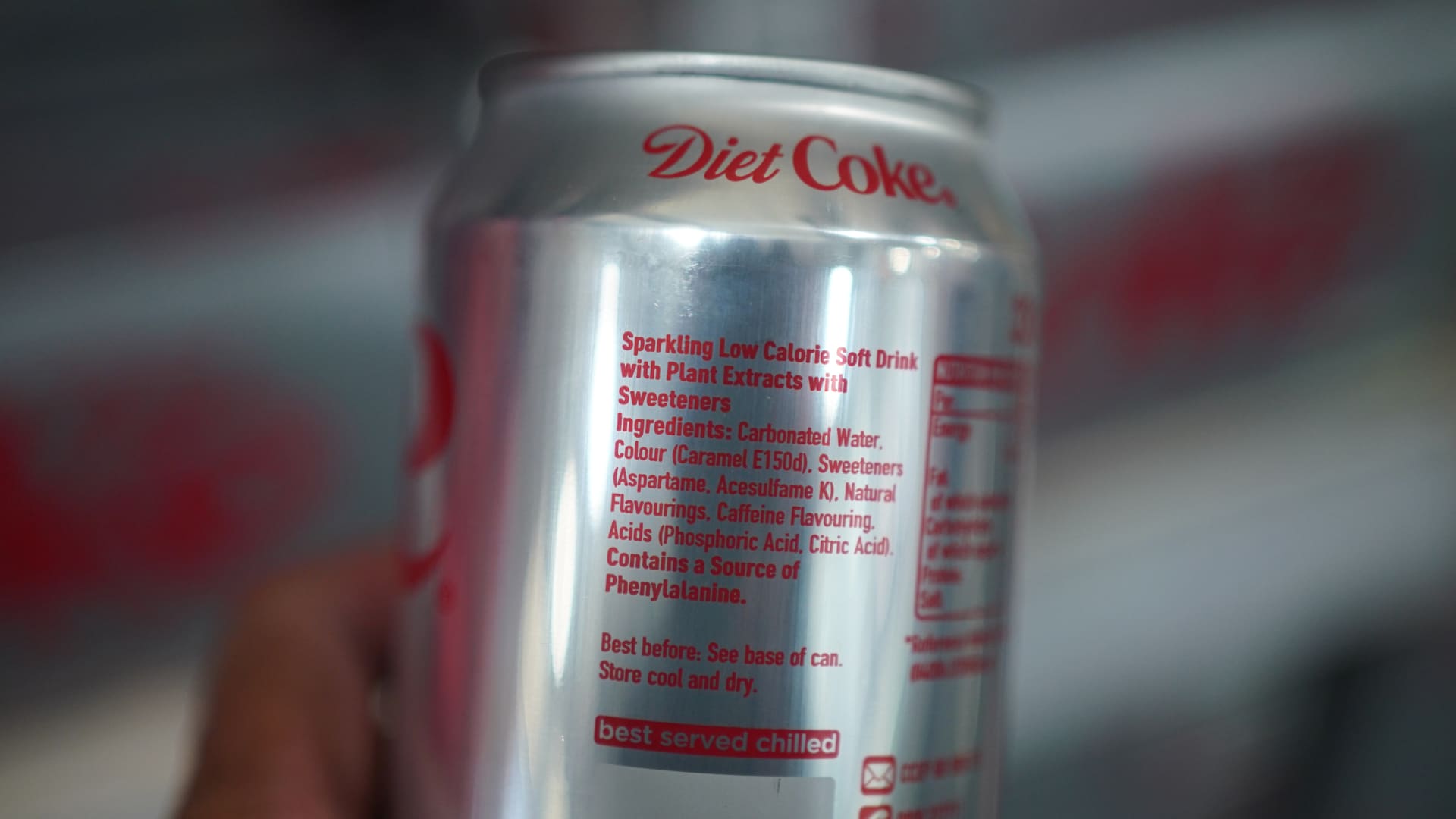Diet Coke in Supermarkets: World Health Organization Classifies Aspartame as a Possible Cancer Risk
According to recent reports, aspartame, an artificial sweetener commonly found in diet fizzy drinks, ice cream, and chewing gum, is now being listed as a potential cancer risk to humans. The World Health Organization (WHO) has classified aspartame as a possible carcinogen but assures that it is safe to consume within recommended daily limits.
The International Agency for Research on Cancer (IARC), a WHO body, conducted a review of three large human studies from the US and Europe on artificially sweetened beverages. They found a potential link between aspartame and a type of liver cancer called hepatocellular carcinoma. Diet sodas like Diet Coke and Pepsi Zero Sugar, as well as some chewing gum and Snapple drinks, use aspartame as a sugar substitute. Lancet Oncology states that artificially sweetened beverages have historically been the primary source of aspartame exposure.
Dr. Mary Schubauer-Berigan, a senior official at IARC, highlighted that the classification of aspartame as a possible carcinogen is based on limited evidence. The three studies may have been influenced by chance, bias, or other flaws. More research is needed to determine if consuming the artificial sweetener can actually lead to cancer.
“This shouldn’t be taken as a direct statement indicating a known cancer hazard from consuming aspartame,” said Schubauer-Berigan during a press conference. She believes this classification is a call to the research community to better understand the potential carcinogenic hazard posed by aspartame.
The Joint Expert Committee on Food Additives (JECFA), an international group of WHO and U.N. scientists, stated that the current evidence supporting a link between aspartame and cancer in humans is not convincing. JECFA recommends that a person’s daily consumption of aspartame should not exceed 40 milligrams per kilogram of body weight over their lifetime. The U.S. Food and Drug Administration’s recommended daily limit is slightly higher, at 50 milligrams of aspartame per kilogram of body weight.
Dr. Francesco Branca, head of the WHO nutrition and food safety division, explains that an average adult would have to drink nine to 14 cans of aspartame-containing soda, like Diet Coke, daily to exceed the limit and potentially face health risks. Occasional consumption of aspartame-containing products, such as chewing gum or soda, is not a cause for concern. However, Branca advises moderation when consuming foods or beverages with aspartame. Children, on the other hand, are cautioned against consuming too much aspartame, with just three cans of soda potentially exceeding their daily limit. Lifelong exposure to aspartame in children needs further research.
The WHO is not demanding that companies withdraw products containing aspartame but suggests that the food industry consider developing products without sweeteners. The American Beverage Association supports the use of aspartame as a safe choice for those wanting to reduce sugar and calorie intake.
Aspartame is widely used in the food industry as a substitute for sugar due to its high sweetness level and low calorie count. Approximately 6,000 products worldwide contain aspartame. Discovered in 1965, aspartame has been the subject of controversy since its approval. The FDA originally approved it as a tabletop sweetener and later authorized its use in certain foods after determining that it did not cause brain tumors. The FDA continues to monitor scientific studies for new information on aspartame.
Denial of responsibility! VigourTimes is an automatic aggregator of Global media. In each content, the hyperlink to the primary source is specified. All trademarks belong to their rightful owners, and all materials to their authors. For any complaint, please reach us at – [email protected]. We will take necessary action within 24 hours.


